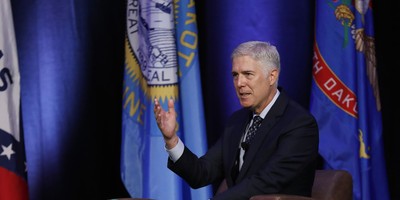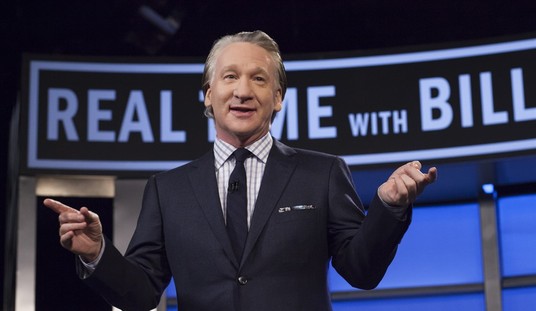Opponents of same-sex marriage reject it on religious and moral grounds but also on practical ones. If we let homosexuals marry, they believe, a parade of horribles will follow -- the weakening of marriage as an institution, children at increased risk of broken homes, the eventual legalization of polygamy and who knows what all.
Well, guess what? We're about to find out if they're right. Unlike most public policy debates, this one is the subject of a gigantic experiment, which should definitively answer whether same-sex marriage will have a broad, destructive social impact.
Massachusetts, Connecticut, Iowa, Vermont, Maine and New Hampshire have all decided to let gays wed. Most of the remaining 44 states, however, are not likely to follow suit anytime soon. So in the next few years, we will have a chance to compare social trends in the states permitting same-sex marriage against social trends in the others.

But with the experiment looming, some opponents seem to be doubting their own convictions. I contacted three serious conservative thinkers who have written extensively about the dangers of allowing gay marriage and asked them to make simple, concrete predictions about measurable social indicators -- marriage rates, divorce, out-of-wedlock births, child poverty, you name it.
You would think they would react like Albert Pujols when presented with a hanging curveball. Yet none was prepared to forecast what would happen in same-sex marriage states versus other states.
Maggie Gallagher, president of the Virginia-based Institute for Marriage and Public Policy, has declared that losing this battle "means losing American civilization." But she politely declined my invitation.
Stanley Kurtz, a senior fellow at the Ethics and Public Policy Center in Washington, has been equally dire. The change, he has warned, would weaken social taboos against adultery and incest and "set in motion a series of threats to the ethos of monogamy from which the institution of marriage may never recover."
Recommended
When it came time to offer more specific predictions, Kurtz was missing in action. I e-mailed him twice and left a message on his office voicemail. After two weeks, I'm beginning to lose hope.
The only person willing to talk was David Blankenhorn, president of the Institute for American Values. His 2007 book, "The Future of Marriage," made a serious and temperate effort to grapple with the case for same-sex marriage. Blankenhorn opposed it out of fear it would drain marriage of its central role by making it "exclusively a private relationship" that is "essentially unconnected to larger social needs and public meanings."
When I talked with him, though, he declined to predict what tangible bad things will occur in same-sex marriage states. "I disagree with those who say it will have no impact at all," Blankenhorn told me. "But beyond that, I don't think you can say."
What's equally striking is that when I made similar inquiries to people on the other side of the debate, I encountered no such reluctance. They forthrightly asserted that granting gays access to matrimony will have no discernible impact.
"I wouldn't expect much effect on the social indicators that would be visible to the naked eye," said Jonathan Rauch, a researcher at the Brookings Institution in Washington and author of the 2004 book, "Gay Marriage: Why It Is Good for Gays, Good for Straights, and Good for America." Evan Wolfson, founder of the organization Freedom to Marry, agreed: "I don't think social indicators will get worse" in same-sex marriage states.
M. V. Lee Badgett, an economist at the University of Massachusetts Amherst and author of the new book, "When Gay People Get Married: What Happens When Societies Legalize Same-Sex Marriage," was happy to answer my question. "I don't think we'll see those kinds of negative social consequences," she said. "In Europe, there's no evidence that patterns have changed for marriage, divorce or non-marital births because of same-sex marriage or registered partnerships."
In a few years, we won't have to rely on such forecasts, because the facts will be there for all to see. And they should settle the issue once and for all.
But I have a strong suspicion that both sides of the debate are right. The supporters of same-sex marriage are right in predicting that it will have no bad side effects. And the opponents are right not to make predictions.
























Join the conversation as a VIP Member